How they’ve overcome the stigma and their thoughts on what future entrepreneurs can do to get a head start in the business.
From Green Entrepreneur by Leland Radovanovic June 18 2021
It bears repeating that the drug war in the U.S., which arguably got its training wheels in 1875 when San Francisco, California outlawed opium dens after a wave of Chinese immigration, has always targeted immigrants, Indigenous, the poor, people of color, and Black people globally.
As we think about Juneteenth, a holiday that celebrates the emancipation of African-American slaves on the anniversary of June 19, 1865, we recognize and celebrate not only the crumbling of one of the most damaging legal structures of American history, but also the Black founders. They are now carving a path with plants and compounds used to scapegoat to target, arrest, deport, and incarcerate people for nearly 100 years.
I spoke with some of these Black founders from across the globe about their personal stories, their companies, and how they’re breaking ground in the cannabis and psychedelic industries.
Related: Black-Owned Cannabis Businesses You Can Support Right Now
Why they got into the business
With a century-long drug war and cannabis prohibition heavily targeting Black people, why would anyone of color want to get into the cannabis or psychedelic industries?
For many of the founders I spoke to, the answer lies in the healing properties of cannabis and psychedelics.
Dr. Oludare Odumosu, who self-identifies as “Nigerian by birth, American by choice,” says the path to becoming a cannabis founder was not started as an executive but as a patient. As a Ph.D. biochemistry student studying in California at the time, he began to suffer from chronic insomnia.
“At a friend’s suggestion, I tried cannabis as a last resort. The relief that cannabis brought me was definitely my “aha moment” as to the scientific potential of the plant,” he says.
Dr. Odumosu is now the CEO and managing director of Zelira Therapeutics, a global cannabinoid medicine and research company focusing on clinically validated cannabinoid medication headquartered in the U.S.
Similarly, Douglas K. Gordon, the CEO of Silo Wellness (CSE:SILO) (FRA: 3K70), a publicly-traded psychedelics company headquartered in Toronto, Canada, with a functional mushroom brand partnership with the Marley family and psychedelic retreats in Oregon and Jamaica, also sees the healing potential of psychedelics.
He says that psychedelics can rewire our neural pathways and can transform the lives of those with treatment-resistant mental illnesses, depression, anxiety, or foundational childhood trauma.
“With and through psychedelic treatments, we have the opportunity to help and support individuals who have had to navigate mental health challenges,” Gordon says.
Overcoming cycles of stigma
At its core, the drug war has stigmatized and demonized drug use and, by extension, the people who use them. If a drug has evil or criminal properties, then the people who use that drug are evil and criminals by defacto. This is what most American’s, and the world, have come to believe about cannabis and psychedelics—a sentiment stoked on a national scale by Richard Nixon in the 1960s.
With that history of stigma, advocates have had to help the public reimagine what cannabis and psychedelics are and their uses. But, even with the mountain of historical and modern evidence and research showing their therapeutic potential, changing nearly 100 years of rhetoric is challenging — even more so for the families and loved ones who have seen the gavel of “justice” smash their communities and future.
Dr. Odumosu is a reminder of the global scale of the demonization of cannabis. Growing up in Nigeria, he was exposed to all the same propaganda conditioning people to view cannabis as a street drug, which “education- and career-minded people” don’t use. But, coming from a family of scientists, his epiphany and career journey to cannabis wasn’t a controversial one to his close circles.
Regardless of the history, when a medical use case is close enough for you to see and touch in person, it can change your perception.
That was the experience of Samuel Adetunji, the co-founder and co-CEO of Veriheal, a healthcare technology helping patients get their medical marijuana cards across the U.S.
In the days leading up to his father’s passing from cancer, Samuel convinced his father to try Rick Simpson Oil (RSO), a potent and thick whole-plant cannabis concentrate that originates in medical use.
Recalling the effects of the RSO on his dying father, Adetunji says, “It had him eating again, being himself, it was so incredible for a brief moment. I think that really showed my family how powerful this plant is.”
A heavy burden and a big opportunity
A common thread across each interview was the feeling of pressure and responsibility to represent their communities while doing right by the plants and compounds they espouse as great mind and body healers.
As an immigrant, a leader in historically demonized, stigmatized, and legislated against industry and a Black American with a family of scientists, Dr. Odumosu feels a particular responsibility to “represent and do justice to all of these communities to which I proudly belong.”
As a black man and CEO in as progressive a sector as psychedelics, Douglas Gordan sees his role as both of great responsibility and inevitable change. Being in an unchartered territory does not seem to phase him, and he wants to lean into the opportunity of “facilitating the bridge between science and nature represents.”
“I see my role as first and foremost as being achieving the best possible outcomes for all our stakeholders. That said, I also embrace the opportunity to potentially inspire, encourage and possibly even validate the ambitions of other minority groups who may have previously questioned their place or opportunity in leadership or in this or similar industries,” Gordon says.
Paving the way for the next generation
I am not one for motivational phrases and posters because they are often a front for toxic positivity, but I can not help but feel that these founders are the embodiment of the words “pressure makes diamonds.” They are entrepreneurs in uncharted industries built on a terrible and violent history, only recently reclaimed for the health and wellness of what could be a new world around drugs.
Their experiences are not only models for future Black entrepreneurs who are looking for successful entrepreneurs that look like them, but they also hold lessons for future entrepreneurs thinking about entering the cannabis or psychedelic industries, Black or otherwise.
One lesson for any budding entrepreneur looking to succeed is fully understanding your “why” and the authenticity, or lack thereof, attached to it. Gordon says that “the unspoken truth about plant medicine and any venture attached it is that the authenticity of your intentions will ultimately inform your outcomes.”
Understanding your “why” requires homework, says Dr. Odumosu. The cannabis industry is highly fragmented and in constant flux, so “be prepared for a bumpy road ahead, especially if you want to lead.”
And while jumping into these industries is a huge challenge, Samuel Adetunji believes there is no “right time” – to start doing the work now.
When talking about growing the business, he says that if you want to scale your business, “learn to duplicate yourself as quickly as possible. When you see success, you have to be able to pass off very important duties.”
Above all, while any founder and entrepreneur in the space will tell you that the cannabis and psychedelic spaces are two of the most challenging industries, know that these compounds genuinely change lives.
There will be setbacks, there will be mistakes, but as Dr. Odumosu says, “Do well to count in all joy.”

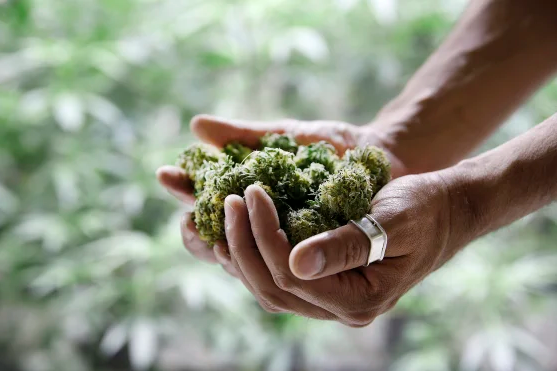
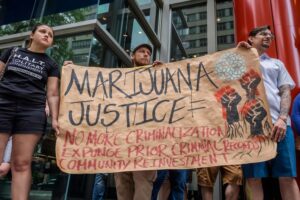

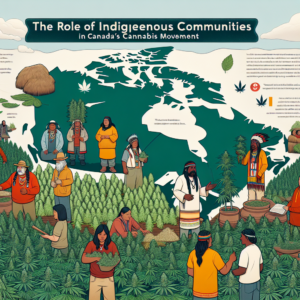
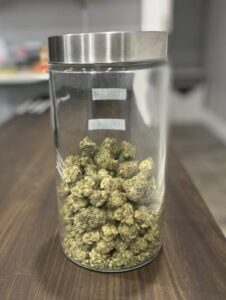



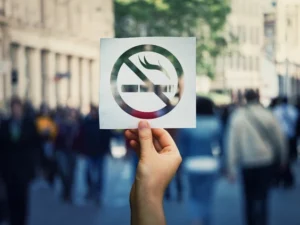



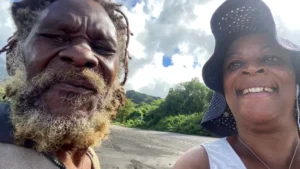

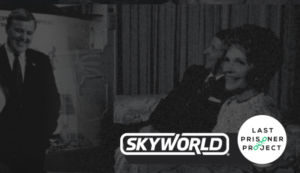



Comments are closed.